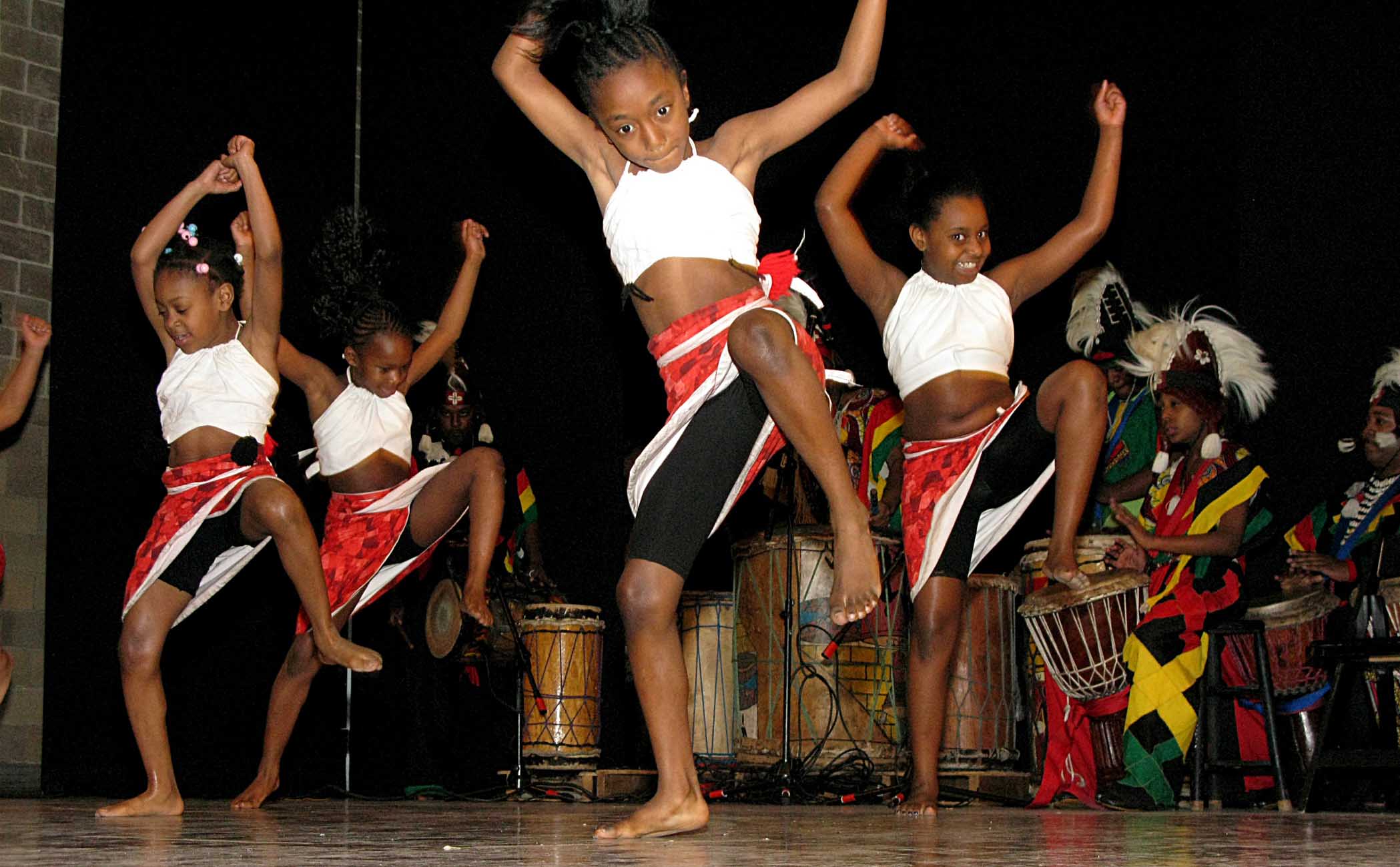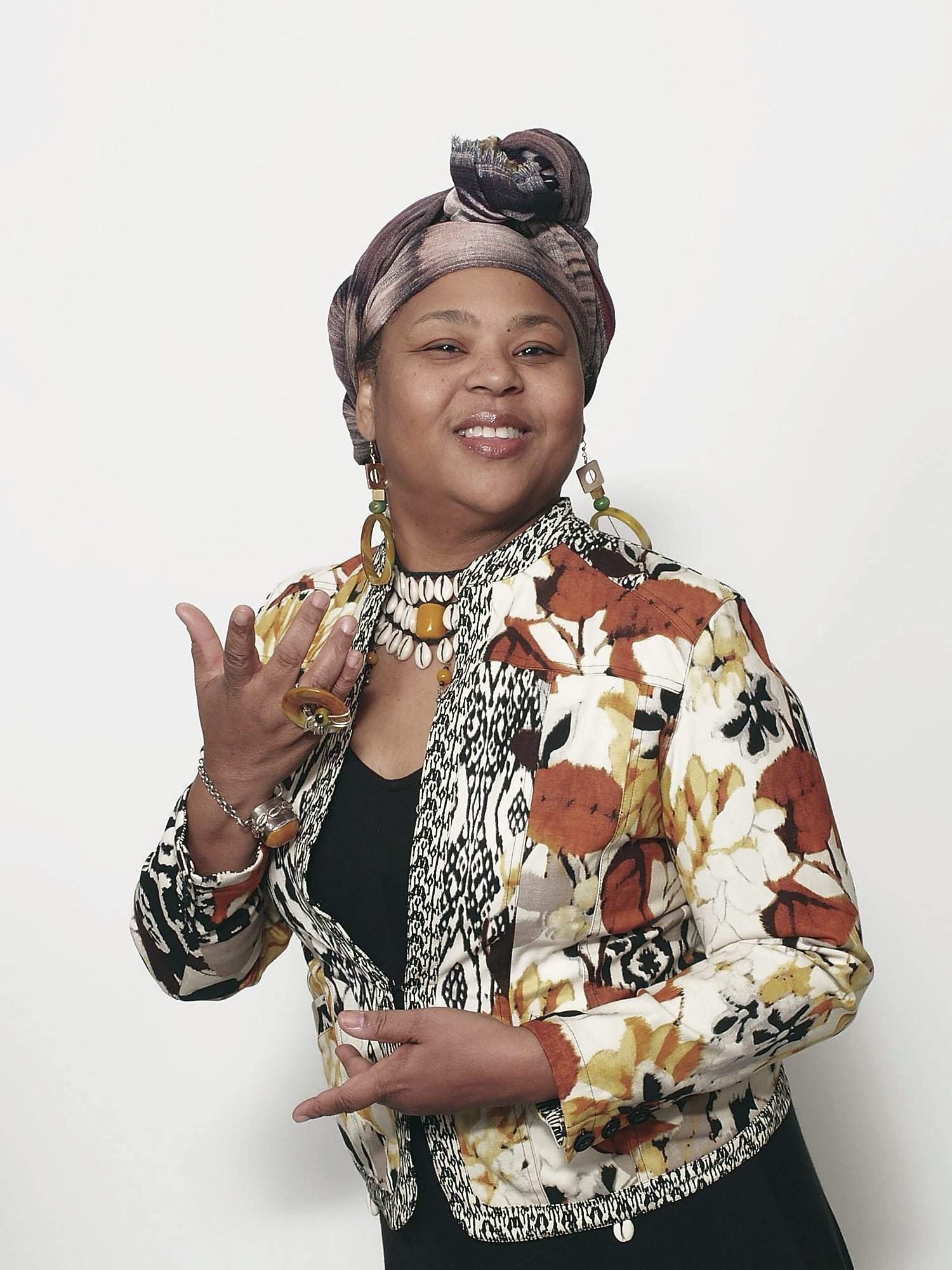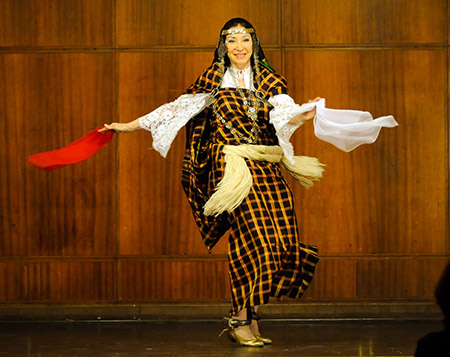Tunisian Dance, Nigerian Music, Ashanti Proverbs at Penn Museum's African Celebration Feb. 28
Penn Museum's 26th Annual Celebration of African Cultures
Saturday, February 28, 11:00am – 4:00 pm
 PHILADEPHIA, PA—African melodies and moves, along with tales, proverbs, artifacts, crafts, and cuisine from cultural traditions spanning the African continent, come together at the Penn Museum's annual Celebration of African Cultures on Saturday, February 28, 11:00 am to 4:00 pm. The festivities showcase acclaimed local artists and griots, including storyteller Queen Nur, Odunde 365, and the Universal African Dance and Drum Ensemble. The celebration is free with Museum admission donation ($15, general admission; $13, seniors [65+]; $10, children [6-17] and full-time students [with ID]; $2 ACCESS Card holders; free to children under 5, members, active U.S. Military, STAMP and PennCard holders).
PHILADEPHIA, PA—African melodies and moves, along with tales, proverbs, artifacts, crafts, and cuisine from cultural traditions spanning the African continent, come together at the Penn Museum's annual Celebration of African Cultures on Saturday, February 28, 11:00 am to 4:00 pm. The festivities showcase acclaimed local artists and griots, including storyteller Queen Nur, Odunde 365, and the Universal African Dance and Drum Ensemble. The celebration is free with Museum admission donation ($15, general admission; $13, seniors [65+]; $10, children [6-17] and full-time students [with ID]; $2 ACCESS Card holders; free to children under 5, members, active U.S. Military, STAMP and PennCard holders).
ACTIVITIES FROM REGIONAL PERSPECTIVES FOR CHILDREN AND ELDERS
West Africa
The Women's Sekere Ensemble greets the day with the rhythms and tones of the sekere, a traditional Nigerian percussion instrument made from intricately beaded gourds, and an agogô, a bell with origins in traditional Yoruba music. Dedicated to the preservation of African music, the percussionists perform at 11:30 am and 2:30 pm.
 Beginning at 1:30 pm, award-winning griot (storyteller) Queen Nur leads "Stories from the Motherland: An Interactive Storytelling Celebration," accompanied by percussionist Yomi Jojolo. Queen Nur's stories recall historical victories and celebrate folkloric traditions in a toe-tapping, hand-clapping experience. Guests can also learn traditional Nigerian folksongs during the presentation.
Beginning at 1:30 pm, award-winning griot (storyteller) Queen Nur leads "Stories from the Motherland: An Interactive Storytelling Celebration," accompanied by percussionist Yomi Jojolo. Queen Nur's stories recall historical victories and celebrate folkloric traditions in a toe-tapping, hand-clapping experience. Guests can also learn traditional Nigerian folksongs during the presentation.
Members of the Universal African Dance and Drum Ensemble offer a thrilling performance at 3:00 pm. The group, known for presentations representing Senegal, Mali, Ghana, Ivory Coast, Liberia, and Sierra Leone, treats guests to an energetic finale.
North Africa
 At 1:00 pm, Habiba, international belly dancer, demonstrates folkloric and classical belly dances of Morocco and Tunisia, such as the Raks al Juzur (Pot Dance) and Raks al Maharem (Scarf Dance). Tunisia, a North African country, has a richly mixed cultural heritage, including Phoenician, Berber, Roman, early Christian, Islamic, and Jewish elements. The Raks al Juzur dance comes from southern Tunisia and celebrates the region's pottery industry. The dancer must balance a water jug on his or her head as the tempo of the music increases. The Raks al Maharem originated as a flirtatious dance before adopting patriotic overtones in support of the independence movement. The Tunisian style of belly dance concentrates on sharp hip twists and is performed by men and women. All guests are encouraged to try to learn how to shimmy, hip-drop, and undulate in this fun workshop.
At 1:00 pm, Habiba, international belly dancer, demonstrates folkloric and classical belly dances of Morocco and Tunisia, such as the Raks al Juzur (Pot Dance) and Raks al Maharem (Scarf Dance). Tunisia, a North African country, has a richly mixed cultural heritage, including Phoenician, Berber, Roman, early Christian, Islamic, and Jewish elements. The Raks al Juzur dance comes from southern Tunisia and celebrates the region's pottery industry. The dancer must balance a water jug on his or her head as the tempo of the music increases. The Raks al Maharem originated as a flirtatious dance before adopting patriotic overtones in support of the independence movement. The Tunisian style of belly dance concentrates on sharp hip twists and is performed by men and women. All guests are encouraged to try to learn how to shimmy, hip-drop, and undulate in this fun workshop.
MANCALA, A MARKETPLACE AND MORE
Throughout the day visitors can learn to play the traditional "board" game mancala, which originated in West Africa. Today, the game is called warri in Barbados, conka in Indonesia, and Swahili-speaking cultures along the east coast of Africa play a complex variation called bao. Guests are also invited to design a family craft with members of Odunde365.
An African mini-marketplace brings colorful textile prints, art, apparel, and wooden, leather, and bronze accessories available for purchase to the afternoon celebration.
Visitors can also stop by the Museum Shop to browse African-inspired and fair trade, African-made items.
The Pepper Mill Café also gets into the spirit, offering African-inspired afternoon snacks.
REFLECTION THROUGHOUT THE GALLERIES
"When you follow in the path of your father, you learn to walk like him."
—Ashanti Proverb
Visitors young and young at heart can join an African Proverbs Family Gallery Tour of the Museum's Africa Gallery to learn about the brass weights of different shapes and sizes designed to weigh gold—made by the Akan peoples of present-day Ghana and Ivory Coast—and learn about some of the proverbs represented by some of the weights. Tours depart every 15 minutes from 11:00 am until 12:30 pm.
The Africa Gallery features more than 300 objects from cultures throughout the continent, including masks, gold weights, textiles, sculpture, and musical instruments. The Museum also includes the Lower and Upper Egypt Galleries with Egyptian mummies, a 12-ton red granite Sphinx (the third largest Sphinx in the Western hemisphere), and architectural elements from the Palace of the Pharaoh Merenptah, all ca. 1200 BCE, as well as statuary and tomb materials from 5,000 years of Egyptian culture.
Annual Celebration of African Cultures 2015 Schedule
11:00 am – African Proverbs Family Gallery Tour (every 15 minutes until 12:30 pm)
11:30 am – Women's Sekere Ensemble
1:00 pm – Tunisian and Moroccan Belly Dance Workshop with Habiba
1:00 pm – 3:00 pm – Craft station with Odunde365
1:30 pm – "Stories from the Motherland: An Interactive Storytelling Celebration" with Queen Nur and Yomi Jojolo
2:30 pm – Women's Sekere Ensemble
3:00 pm – Universal African Dance and Drum Ensemble and Finale
All Day Events
Mancala
African Marketplace and Museum Shop
Pepper Mill Café
Special African-inspired Snack Menu
![]() TWEET IT! Discover diverse African music, dance, cuisine, & more at the @pennmuseum's Celebration of African Cultures, 2/28: http://bit.ly/16f4ry5
TWEET IT! Discover diverse African music, dance, cuisine, & more at the @pennmuseum's Celebration of African Cultures, 2/28: http://bit.ly/16f4ry5
About the Penn Museum
The Penn Museum (the University of Pennsylvania Museum of Archaeology and Anthropology) is dedicated to the study and understanding of human history and diversity. Founded in 1887, the Museum has sent more than 300 archaeological and anthropological expeditions to all the inhabited continents of the world. With an active exhibition schedule and educational programming for children and adults, the Museum offers the public an opportunity to share in the ongoing discovery of humankind's collective heritage.
The Penn Museum is located at 3260 South Street, Philadelphia, PA 19104 (on Penn's campus, across from Franklin Field). Public transportation to the Museum is available via SEPTA's Regional Rail Line at University City Station; the Market-Frankford Subway Line at 34th Street Station; trolley routes 11, 13, 34, and 36; and bus routes 21, 30, 40, and 42. Museum hours are Tuesday through Sunday, 10:00 am to 5:00 pm, and first Wednesdays of each month until 8:00 pm. Open select holiday Mondays. Museum admission donation is $15 for adults; $13 for senior citizens (65 and above); free for U.S. Military; $10 for children and full-time students with ID; free to Penn Museum Members, PennCard holders, and children 5 and younger.
Hot and cold meals and light refreshments can be purchased with or without Museum admission in The Pepper Mill Café; the Museum Shop offers a wide selection of gifts, books, games, clothing and jewelry. The Penn Museum can be found on the web at www.penn.museum. For general information call 215.898.4000. For group tour information call 215.746.8183
Image captions, top to bottom: The Universal African Dance and Drum Ensemble performs rhythms and choreography associated with various West African cultures, including Liberian and Senegalese cultures (Photo: Penn Museum). Guests to the Penn Museum's Annual Celebration of African Cultures can hear the griot tradition from storyteller Queen Nur, accompanied by percussionist Yomi Jojolo (Photo courtesy of the artist). Guests can learn the sharp hip twists of the Tunisian style of belly dance with international performer Habiba and her ensemble, at the Penn Museum's Annual Celebration of African Cultures (Photo: Lloyd Davis).
###
About the Penn Museum
The Penn Museum’s mission is to be a center for inquiry and the ongoing exploration of humanity for our University of Pennsylvania, regional, national, and global communities, following ethical standards and practices.
Through conducting research, stewarding collections, creating learning opportunities, sharing stories, and creating experiences that expand access to archaeology and anthropology, the Museum builds empathy and connections across diverse cultures
The Penn Museum is open Tuesday-Sunday, 10:00 am-5:00 pm. It is open until 8:00 pm on first Wednesdays of the month. The Café is open Tuesday-Thursday, 9:00 am-3:00 pm and Friday and Saturday, 10:00 am-3:00 pm. On Sundays, the Café is open 10:30 am-2:30 pm. For information, visit penn.museum, call 215.898.4000, or follow @PennMuseum on social media.



